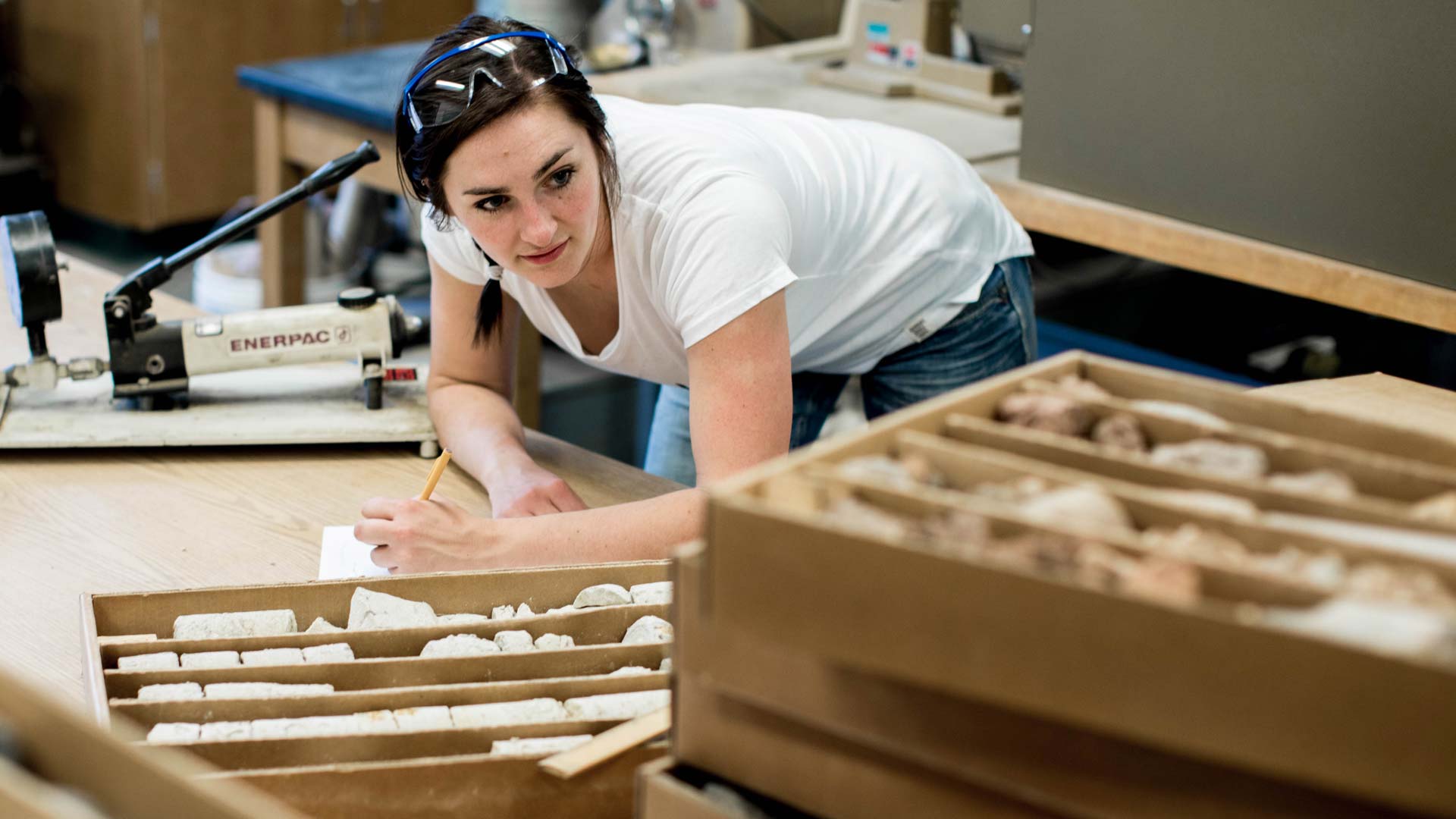There’s no doubt that what you’re passionate about should influence the major you choose. But let’s be honest: you want to make sure that you get the best return on investment for your education as well. Finding a discipline that is exciting, gives you marketable experience before you graduate, and connects you to in-demand, high-paying jobs as soon as you step off of campus checks all the boxes for an ideal college major.
Surprisingly, some of the best majors like these are ones few incoming students are familiar with! Here are four excellent majors to consider:
Hydrogeology
Water is the Earth’s most important resource. Hydrogeologists ensure that water keeps flowing and that our supply is protected. With climate change impacting our planet, the need for people who understand how to find water for our communities and conserve our watersheds will only continue to grow. At the University of Nevada, Reno, you will be in the premier location to study hydrogeology. Nevada, with its expansive deserts, and the proximity of our campus to Lake Tahoe and the Sierra Nevada mountains, will allow you unparalleled field and research experiences as an undergraduate. And, look forward to a median salary of $84,000 as a hydrologist after graduation.
Learn more about majoring in hydrogeology.
Microbiology and Immunology
Viruses, microbes and diseases are, unsurprisingly, pretty hot topics. But did you know that you can work on the frontlines of disease research and prevention without going to medical school? In the microbiology and immunology program, you will have access to advanced research in subjects such as cancer biology and emerging disease detection. Tap into the laboratory resources offered by the School of Medicine and the College of Science as an MI major so that you are well-positioned to pursue careers in microbiology research or a clinical laboratory. Should you decide on medical school in the future, few majors will better prepare you. But even a bachelor’s degree from the MI program will open immediate pathways to solid careers in the most important fields for preserving human health.
Learn more about majoring in microbiology and immunology.
Mining and Metallurgical Engineering
Okay, I’m cheating here: mining and metallurgical engineering are two different majors. But both are essential to daily life in ways you might not expect. Want to help with the transition from gas to electric vehicles? Mining engineers extract the lithium needed for electric vehicle batteries; metallurgical engineers transform that lithium into a useable form for companies such as Tesla. Everything from the phone in your pocket to the car you drive – none of it would exist without mining and metallurgical engineers! Enjoy small class sizes, incredible resources and support from the Mackay School of Earth Sciences & Engineering (which is historic and highly-regarded in the industry!) and exceptional hands-on experiences with major companies. Many undergraduate students from these programs graduate with multiple job offers in hand and a median annual salary just shy of $100,000!
Learn more about majoring in mining engineering or metallurgical engineering.
Geography
Think, for a moment, about how important maps are for our world. They help us scope out the best way to reach our destination, aid us in understanding the importance of place to cultures across the globe and allow us to visualize the environment in sophisticated ways. As a geographer, you will be a problem-solver. You can use GIS mapping to document the effects of climate change, utilize geospatial data to help businesses improve productivity and sales, help cities evolve and plan for future growth, and work with some of the most cutting-edge technology to survey breath-taking landscapes (from the tops of mountains to the bottom of the ocean floor). If you want to make a positive impact in the world, geography affords you multiple, lucrative pathways.
Learn more about majoring in geography.
 Taylor Diamond is an academic advisor and the coordinator of recruitment for the College of Science at the University of Nevada, Reno. Local to Northern Nevada, Taylor graduated with bachelor’s and master’s degrees from the University. Taylor has over seven years of experience in higher education, working in advising, recruitment, and teaching at the University of Nevada, Reno, Sierra Nevada College, and Western Nevada College. Prior to returning to Reno, Taylor attended graduate school in Philadelphia and worked for a nonprofit in New York City. The educational and campus experience of the University of Nevada, Reno and the natural landscape of the Sierra Nevada mountains convinced Taylor to eventually return home.
Taylor Diamond is an academic advisor and the coordinator of recruitment for the College of Science at the University of Nevada, Reno. Local to Northern Nevada, Taylor graduated with bachelor’s and master’s degrees from the University. Taylor has over seven years of experience in higher education, working in advising, recruitment, and teaching at the University of Nevada, Reno, Sierra Nevada College, and Western Nevada College. Prior to returning to Reno, Taylor attended graduate school in Philadelphia and worked for a nonprofit in New York City. The educational and campus experience of the University of Nevada, Reno and the natural landscape of the Sierra Nevada mountains convinced Taylor to eventually return home.
Request more info
Do you have more questions we can answer? Are you interested in receiving additional information about the University, the admissions process, applying, financial aid or more?
